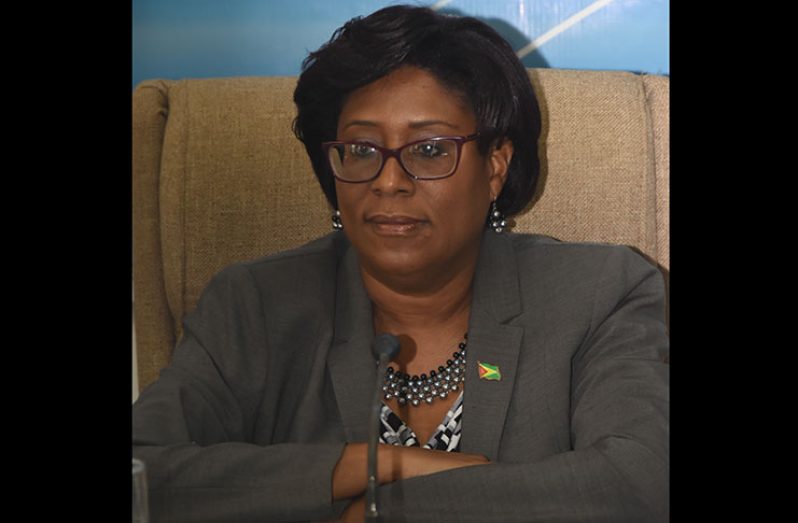SEVERAL international telecommunication companies have expressed interest in investing here even as the country continues to work towards the full liberalisation of its telecom sector.
This was revealed by Minister of Public Telecommunications, Cathy Hughes, on Monday during a news conference at her ministry, where members of the media were brought up-to-speed on major Information and Communication Technology (ICT) projects being undertaken by the government.
The minister said that over the course of approximately six months, she has received roughly 18-20 proposals from companies, both international and local, eager to receive more information on the licence application process. “We’ve not publically said, ‘send your applications in’…that’s the kind of response we’re even getting before we put everything in place to receive those applications,” Minister Hughes explained, adding: “I would think by June of this year, we would be in a position to be addressing applications that would have been coming in from people and would have put the request for proposal out there.”
The minister said this response is as a result of the passage of the Telecommunication (Amendment) Bill in Parliament in July 2016, through which the government sought to transform the sector from a monopoly to a liberalise environment. For Guyanese, this will not only mean an increase of the availability of internet access, but can also see them receiving cheaper options, better quality and advanced telecommunications services as more investors are attracted.
The date for liberalisation, however, though previously set for mid-2017, has been a “moving target” due to tax negotiations between the Guyana Telephone and Telegraph Company (GTT), its parent company Atlantic Tele-Network (ATN) and the Guyana Revenue Authority (GRA), according to the minister.
“I’m really happy to say that the negotiations to date have been conducted in an extremely cordial manner. If you recognise that GTT and ATN have had a monopoly situation that’s lasted over 20 years, then you can understand that from the perspective of both parties, they want to make sure that they’re coming to the table to get the best,” Hughes explained in regards to the delay.
When asked whether the discussions entail setting aside any taxes owed against future expenditure or taxes, the minister clarified that it was not a matter within the scope of her ministry but one that would be better addressed by the GRA and the Ministry of Finance.
Other ongoing interactions with the GRA include the pricing structure of the final report commissioned of spectrum management issues which the government says it is now in possession of and will now address. “At the end of the day, the Guyana Revenue Authority and the Commissioner General have to make sure that they’re covering all their bases from the financial end,” Hughes stated, further establishing: “And therefore the focus is not on getting this done in the shortest space of time but [on] making sure that we come up with an end game that suits everyone.”
The press briefing was the ministry’s first for 2018 and addressed the ICT access and e-service project for Hinterland, Poor and Remote Communities (HPRC) which will see an additional 200 communities receiving free internet access through ICT hubs. At the gathering, there were questions raised as to how liberalisation would affect the ministry’s current reliance on GTT for its ICT projects.
Chairman of the National Data Management Authority, Floyd Levi, addressed the concerns. He clarified that that company is not the sole provider of internet services to the government-implemented ICT hubs, but it was rather a “mix” of Digicel, GTT and IMON Wireless Solutions, a private telecommunication service.
GTT is utilized mostly along the coastline; Digicel services Kwakwani, Mahdia, Bartica, Linden, Baramita, Matthew’s Ridge, Port Kaituma, Mabaruma and Santa Rosa while IMON covers ICT hubs in the interior savannah.
“We’re already using companies outside of GTT,” Levi said, further remarking: “So moving forward, I see this model continuing where we’re actually using those companies that are best placed to provide the services that we need.”
Meanwhile, the minister informed: “And that’s where the investment potential in the sector can be realized, even in our hinterland areas or remote communities. Because, imagine that any entrepreneur that wants to get into providing similar services, it’s an open opportunity for them to compete in that sector.
“That [liberalized environment] means that everybody comes to the table to get and to apply for the same terms and conditions. There are no exceptions or special outcomes or things given to any particular companies as opposed to another.”



.jpg)








